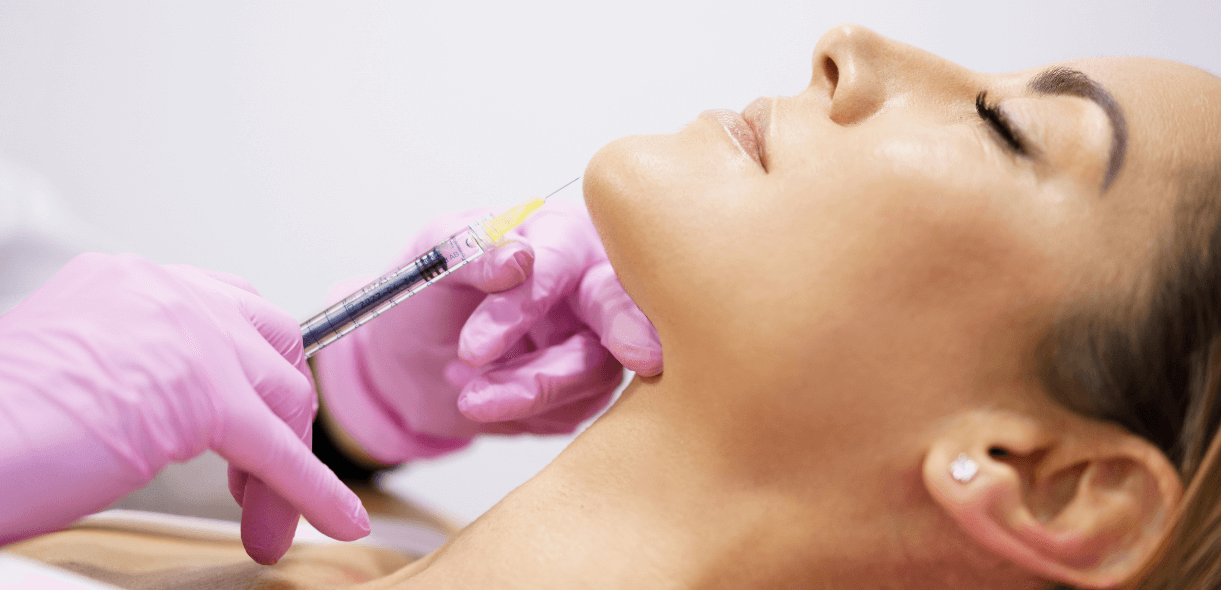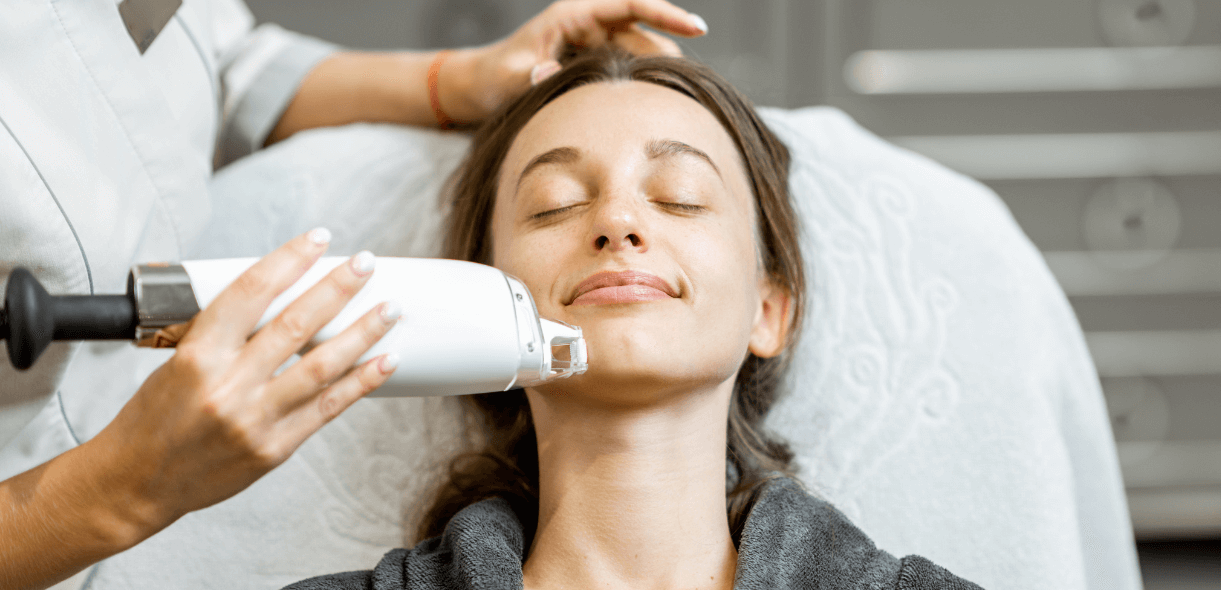TMJ Trouble? Unmasking the Pain & Trying Laser & Botox Solutions

TMJ disorders can manifest as jaw pain, clicking sounds, or difficulty chewing, impacting daily life. Understanding the causes and available treatments is key to finding relief. If you’ve ever experienced jaw pain or discomfort, you may be familiar with the challenges posed by TMJ disorders.
TMJ disorders can disrupt daily life, causing jaw pain, clicking, or difficulty chewing. Understanding the root of the issue is crucial for finding effective treatments. Enter laser therapy and Botox injections. These advanced techniques offer promising avenues for managing TMJ-related discomfort.
Laser therapy targets inflammation and promotes healing in the temporomandibular joint, while Botox injections relax tense jaw muscles, alleviating symptoms. As individuals grapple with TMJ-related discomfort, consulting a TMJ dentist is also essential for finding effective treatments.
In this blog, we’ll delve into the intricacies of TMJ disorders and explore how laser therapy and Botox injections offer innovative solutions for managing TMJ-related pain and discomfort.
Understanding TMJ Disorders
TMJ disorders, also known as temporomandibular joint disorders (TMJD), encompass a range of conditions affecting the jaw joint and surrounding muscles. Individuals with TMJ disorders often experience various symptoms that can significantly impact their daily lives.
Defining TMJ Disorders:
- TMJ disorders involve dysfunction or pain in the temporomandibular joint, located on each side of the face, where the jawbone connects to the skull.
- Common symptoms include jaw pain or tenderness, clicking or popping sounds when opening or closing the mouth. Also includes difficulty chewing or a sensation of jaw locking.
Exploring Underlying Causes:
- TMJ disorders can arise from a variety of factors, including bruxism (teeth grinding or clenching), jaw misalignment, or arthritis affecting the jaw joint.
- Bruxism exerts excessive pressure on the jaw joint, leading to muscle tension and joint inflammation, contributing to TMJ dysfunction.
- Jaw misalignment, whether due to genetics, injury, or poor dental work, can strain the jaw joint and surrounding muscles, resulting in TMJ-related symptoms.
- Arthritis, such as osteoarthritis or rheumatoid arthritis, can cause degeneration of the temporomandibular joint, leading to pain and dysfunction in TMJ disorders.
Understanding the symptoms and underlying causes of TMJ disorders is essential for effective diagnosis and treatment by a TMD dentist in Rocklin, CA. By addressing these factors, individuals can seek appropriate interventions to alleviate discomfort and improve jaw function.
Laser Therapy for TMJ Pain
The Laser therapy emerges as a promising non-invasive option for individuals grappling with TMJ disorders, offering relief from pain and discomfort associated with this condition. Laser therapy, also known as low-level laser therapy (LLLT) or photobiomodulation, harnesses the power of light energy to stimulate cellular activity and promote healing. As a non-invasive treatment modality, laser therapy provides an alternative approach to managing TMJ disorders without the need for surgery or medications.
How Laser Therapy Works?
- Laser therapy targets inflamed tissues within the temporomandibular joint, penetrating deep into the affected area.
- By stimulating cellular metabolism and increasing blood flow, laser therapy reduces inflammation, alleviates pain, and accelerates tissue repair.
- Additionally, laser therapy triggers the release of endorphins, natural pain-relieving chemicals in the body, providing immediate relief from TMJ-related discomfort.
Incorporating laser therapy into TMJD treatment plans offers a holistic approach to addressing symptoms and improving overall jaw function. By harnessing the therapeutic benefits of light energy, individuals experiencing TMJ pain can experience significant relief and enhanced quality of life.
Botox Injections for TMJ Relief
Botox injections have emerged as a valuable tool in the arsenal of treatments for TMJ disorders, offering targeted relief from pain and muscle tension associated with this condition.
Exploring Botox Use
Botox, or botulinum toxin, is a neurotoxic protein derived from the bacterium Clostridium botulinum. In TMJ treatment, Botox injections are strategically administered into specific jaw muscles to alleviate symptoms and improve jaw function.
Mechanism of Action
Botox works by temporarily blocking the nerve signals that trigger muscle contractions, leading to muscle relaxation and decreased muscle activity. Thus by inhibiting excessive muscle contractions, Botox helps prevent jaw muscles from overworking, reducing tension and minimizing TMJ-related symptoms.
Benefits of Botox Injections:
- Botox injections offer several benefits for individuals suffering from TMJ disorders, including pain relief, improved jaw mobility, and reduced muscle stiffness.
- Unlike traditional treatments such as oral medications or splints, Botox targets the underlying cause of TMJ pain by directly addressing muscle hyperactivity.
- Incorporating Botox injections into TMJ treatment plans provides patients with a minimally invasive option for managing symptoms and enhancing their overall quality of life.
As part of comprehensive care provided by a TMJ dentist in Rocklin, CA, Botox offers personalized relief tailored to each individual’s needs.
Benefits and Efficacy of Laser and Botox Treatments
Both laser therapy and Botox injections offer unique advantages in addressing TMJ pain and improving overall jaw function, providing patients with effective solutions for long-term relief.
Benefits of Laser Therapy:
Reduces inflammation: Laser therapy targets inflamed tissues in the temporomandibular joint, reducing swelling and discomfort.
Alleviates pain: By stimulating the release of endorphins, laser therapy provides natural pain relief for TMJ sufferers.
Promotes tissue healing: Laser therapy accelerates the healing process, promoting tissue repair and regeneration in the affected area.
Benefits of Botox Injections:
Muscle relaxation: Botox injections relax tense jaw muscles, reducing muscle spasms and alleviating TMJ-related tension.
Prevents overworking: By inhibiting excessive muscle contractions, Botox helps prevent jaw muscles from overworking, minimizing TMJ symptoms.
Long-lasting relief: Botox injections offer sustained relief from TMJ pain and discomfort, with results lasting for several months.
Efficacy of Laser and Botox Treatments:
- Improved jaw function: Both laser therapy and Botox injections improve jaw mobility and flexibility, allowing for smoother jaw movement and reduced stiffness.
- Enhanced quality of life: By addressing the underlying causes of TMJ pain, laser therapy, and Botox treatments significantly enhance the overall quality of life for TMJ sufferers, enabling them to enjoy activities without the burden of chronic pain.
Incorporating laser therapy and Botox treatment into TMJ plans offers patients a comprehensive approach to managing symptoms and restoring jaw function, ultimately leading to improved well-being and satisfaction.
Laser therapy and Botox injections emerge as promising solutions for TMJ pain and dysfunction, offering patients effective and minimally invasive treatment options. Thus by addressing inflammation, muscle tension, and underlying causes of TMJ disorders, these therapies provided by a qualified TMJ dentist can significantly improve jaw function and enhance overall quality of life. Embracing these innovative treatments opens doors to long-lasting relief and restored well-being for TMJ sufferers.



